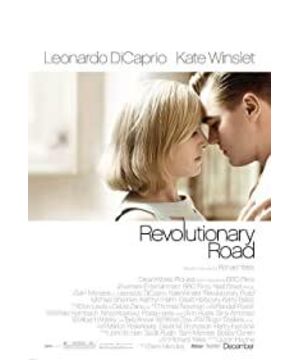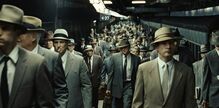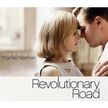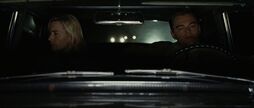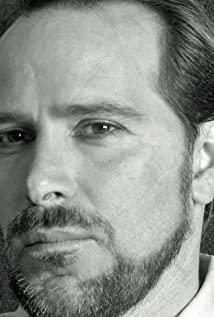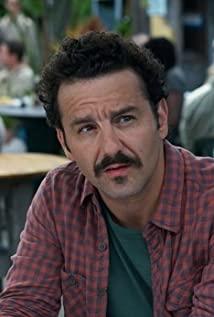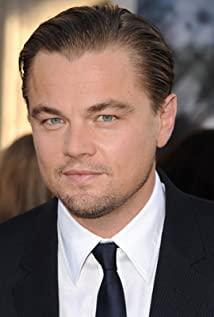In the proposition of marriage, this can probably be simplified as Nora's choice to leave or not. However, not only is Nora going to run away, but Nora's husband is also involved.
"Revolutionary Road" tells the story of a middle-class couple in the United States in 1955, struggling with the choice between making money and living a boring life or moving to Europe to start a new life. In the two-hour video, you see the passion and ups and downs of pursuing your dreams, you see the intangibility and power of reality, and you see everything you want to do, but you may not dare to do.
The image of the protagonist on the screen is also quite meaningful. The couple is played by Leonardo DiCaprio and Kate Winslet. Ten years ago, Titanic created a love fairy tale that broke the hearts of the world. Now they are reunited, but what they offer is reality. The loneliness and scarcity of the middle class in the world.
Seeing them quarreling and weeping on the screen after ten years of vicissitudes, and thinking of the frivolous young people who once stood on the bow of the boat and embraced the world, you can't help but sigh with emotion at this inescapable reality.
In the film, the two people are talented and beautiful, with a car and a house, and a child and a daughter who are innocent and lovely. It is the life that countless Chinese people envy, but they can't stand a little dream. They pride themselves on being different and should not live in mediocrity and emptiness. So on the night of the man's 30th birthday, the two finally decided: drop everything and go to Paris!
It seems that "living elsewhere" is the truth all over the world, as if living in another place, life can start fresh, without all kinds of pressure, and no longer worry about making a living. But he never thought that he would find a way to support himself when he arrived at that dream land.
Europe is the fantasy of countless dreamers in the world, just as domestic princes yearn for Yangshuo and Lijiang. I don’t know how many friends make wishes on weekdays, saying that the ultimate ideal of life is to open a small bookstore or a small teahouse in a paradise, and spend the rest of my life peacefully and far away. But how many people actually try it? Most people are not just sighing and daydreaming after tea and dinner while working hard.
So, when I saw that the couple in the film really bought the ferry tickets and packed their furniture, I was full of admiration. After all, it's one thing to dream, and quite another to actually take steps to make it happen. It's a pity that it didn't last long.
Fate always takes pleasure in making fun of mortals. Originally, the life of the two was so bad that they couldn't give up. Who would have guessed that the man suddenly got the opportunity to get a promotion and a salary increase, and the woman found out that she was pregnant again. The temptation of ambition and the pressure of livelihood combine to make people have to make a new choice:
take a risk to open up a new life? Or do you temporarily endure the boredom of work and look forward to a little improvement in your life? Perhaps, to change the old-fashioned discourse system: revolution, or reform?
Most people choose to improve, it is safe, it allows you to see a little bit of light ahead, and then willingly continue to walk in the dark. A small number of people choose revolution because they are too sober or too crazy.
The man finally chose to improve, expecting the success of his career to prove himself, but also afraid of accomplishing nothing in an unfamiliar environment. His reason is that men must have the courage to endure reality and take their due responsibilities. It sounds reasonable, but he forgets that it takes more courage to start life again.
Women chose the revolution, perhaps because of the stubbornness and idealism that women are used to. She chose to have a miscarriage and kill the fetters of that reality, only to be killed by reality. Although the film did not explain anything else, I think she was determined to go to Paris alone after the miscarriage.
They eventually became the talk of friends and neighbors, their dreams became spicy condiments, and they always warned mediocre people not to go overboard. The person who understood them best was a psychopath, who praised their courage to escape the "endless emptiness" and slammed them after they changed their minds: Selfishness and greed ruined everything.
Whether life requires compromise or resistance, no one can give a standard answer. We only saw in the movie that the old man who gently turned off his hearing aids to get rid of his wife's nagging chose to ignore it, but he and his wife had grown old, and the couple who were eager to pursue their dreams had to part ways in the end.
What kind of life is meaningful, this is not to judge. What the director gives is just a kind of silent sadness, bound by reality and unable to pursue dreams. Is this the misfortune of an individual, or the sadness of the whole society?
The film is adapted from the 1961 author Richard Yates's debut novel of the same name, which was named "one of the 100 best English novels" by Time magazine in 2005. One commented that "if "Revolutionary Road" can't make Richard Yates immortal, then immortality is not worth having." The
title "Revolutionary Road" is not only the name of the street where the couple lived, but also the whole Summary of the story. The road to revolution is really tortuous, but the future is not necessarily bright.
View more about Revolutionary Road reviews


